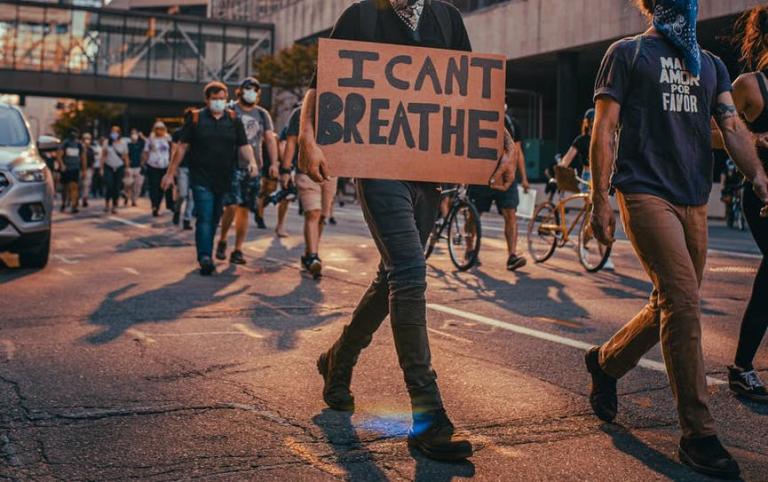“I think our criminal justice system is working as intended. It is only broken to the extent that our society is broken… the lens of criminal justice is the way this country has traditionally regarded black people. I don’t know that anything is broken at all. The deeper question is: are we okay with something on the order of 4,000 African American males per 100,000 being in jail …are we okay with there being a 1 in 3 chance for every African American male born in this generation eventually doing some sort of time in prisons and in jails? And that goes to the deeper question of, are we alright with black people in the position that they are in our society or do we have some sort of long term commitment to justice?” – Ta-Nehisi Coates
Ta-Nehisi Coates is one of the most talked about, best selling, and provocative writers of the past year (Between the World and Me). Coates has written a new cover story for The Atlantic called, “The Black Family in the Age of Mass Incarceration.”
Here’s the thing: Whether or not you care about race, whether or not you care about the injustices facing minorities in our society, whether or not you want to… you need to read this article. The piece is jarring to say the least. The quote above is from one of the short videos produced to accompany the online form of the essay.
Coates has become a singular contemporary figure among black Americans, and the go to sound-byte slash Twitter quote provider on all things race. As Carlos Lozada wrote in the Washington Post: ““Did you read the latest Ta-Nehisi Coates piece?” is shorthand for “Have you absorbed and shared the latest and best and correct thinking on racism, white privilege, institutional violence and structural inequality?” If you don’t have the time or inclination or experience to figure it out yourself, you outsource it to Ta-Nehisi Coates.”
As one would expect, Coates is not without his detractors. Rich Lowry, who is as conservative as they come, wrote a scorching critique for Politico titled, “The Toxic World-View of Ta-Nehisi Coates.” David Brooks wrote a less biting response for The New York Times, “Listening to Ta-Nehisi Coates While White.” Both attempt the same general counter-testimony. Brooks’ version is better. Written as a letter to Coates, Brooks says, “I think you distort American history. This country, like each person in it, is a mixture of glory and shame. There’s a Lincoln for every Jefferson Davis and a Harlem Children’s Zone for every K.K.K. — and usually vastly more than one. Violence is embedded in America, but it is not close to the totality of America.”
Fair enough. But this kind of sentimentality isn’t really engagement. The larger point Coates is making has yet to be countered in any substantive way. The reason Coates’ argument has not been so countered is, I think, because there’s far too much truth to what he’s saying.
Racism is so deeply woven into the DNA of American culture that–when it is exposed so artfully and accurately in the way Ta-Nehisi Coates does… which is to say more effectively and plane better than any other writer of his generation–it’s such a raw slap in the face that folks like Lowry and Brooks seem to be in blatant denial.
In this most recent piece for The Atlantic, one point that is sticking with me personally is Coates’ insistence that incarceration should be viewed like a social program, like welfare or medicare.
Incarceration is our society’s way of dealing with black men in poverty.
Through the 1960s and 1970s crime was on the rise worldwide. The American solution through the 1980s and 1990s was to lock people up. We now have more actual people in jail than either China or Russia. Crime went down… problem solved, right? Coates answers:
“History has not been kind to this conclusion. The rise and fall in crime in the late 20th century was an international phenomenon. Crime rates rose and fell in the United States and Canada at roughly the same clip—but in Canada, imprisonment rates held steady. “If greatly increased severity of punishment and higher imprisonment rates caused American crime rates to fall after 1990,” the researchers Michael Tonry and David P. Farrington have written, then “what caused the Canadian rates to fall?” The riddle is not particular to North America. In the latter half of the 20th century, crime rose and then fell in Nordic countries as well. During the period of rising crime, incarceration rates held steady in Denmark, Norway, and Sweden—but declined in Finland. “If punishment affects crime, Finland’s crime rate should have shot up,” Tonry and Farrington write, but it did not.”
Those picked to go to prison are not taken at random. By far the largest risk factor for spending time in jail is to be male, black, and uneducated. “Fully 60 percent of all young black men who drop out of high school will go to jail. This should disgrace the country. But it does not,” Coates wrote in BTW&M.
The Atlantic article argues effectively for the fact that, as a strategy for dealing with social issues facing the lower class in our society, the “tough on crime” attitude and accompanying incarceration strategy has been a dismal failure.
What Coates is able to demonstrate–using both cold hard facts, and well told narratives–is that the mechanism of racism feeds both sides of the issue. The present issues facing both blacks and whites in our society are but the distant children of the mother of all sins.
“Mass incarceration is, ultimately, a problem of troublesome entanglements. To war seriously against the disparity in unfreedom requires a war against a disparity in resources. And to war against a disparity in resources is to confront a history in which both the plunder and the mass incarceration of blacks are accepted commonplaces. Our current debate over criminal-justice reform pretends that it is possible to disentangle ourselves without significantly disturbing the other aspects of our lives, that one can extract the thread of mass incarceration from the larger tapestry of racist American policy.”
Coates refuses to pretend. He refuses to allow the rest of us to pretend. This is why you need to read his work. It’s going to make you mad. It’s going to make you sad. It’s going to make you feel helpless & trapped. It’s going to make you fearful and disgusted… in other words, it’s going to make you feel the way the African American community has been feeling since they were forced onto slave ships and carted to America.














